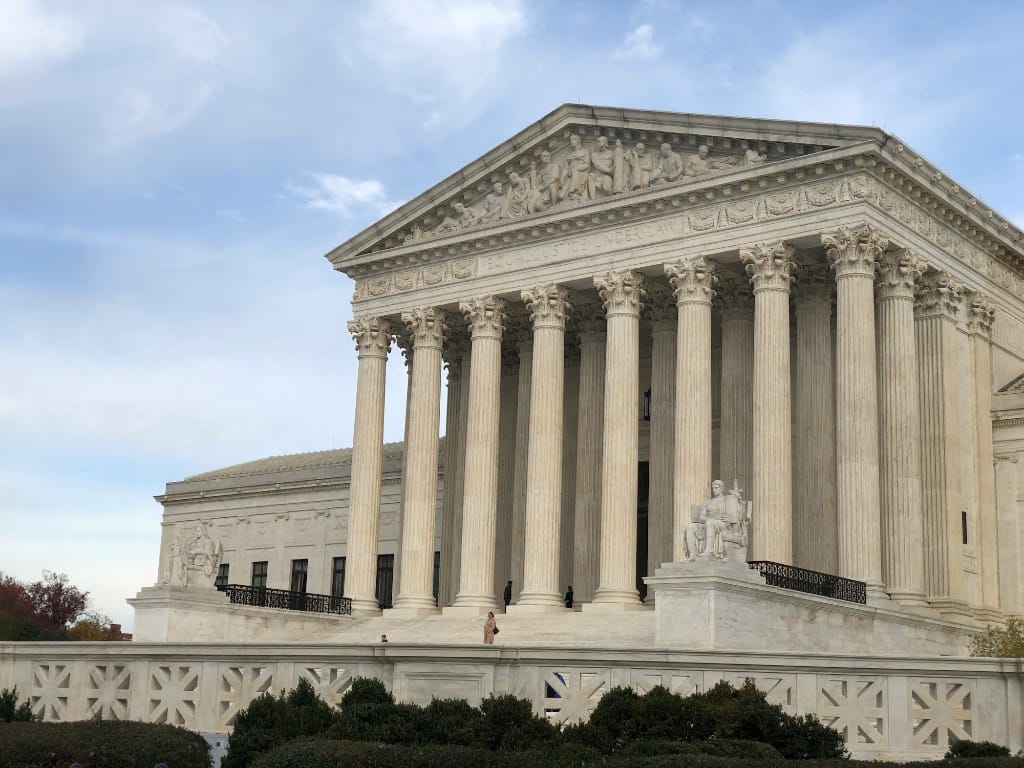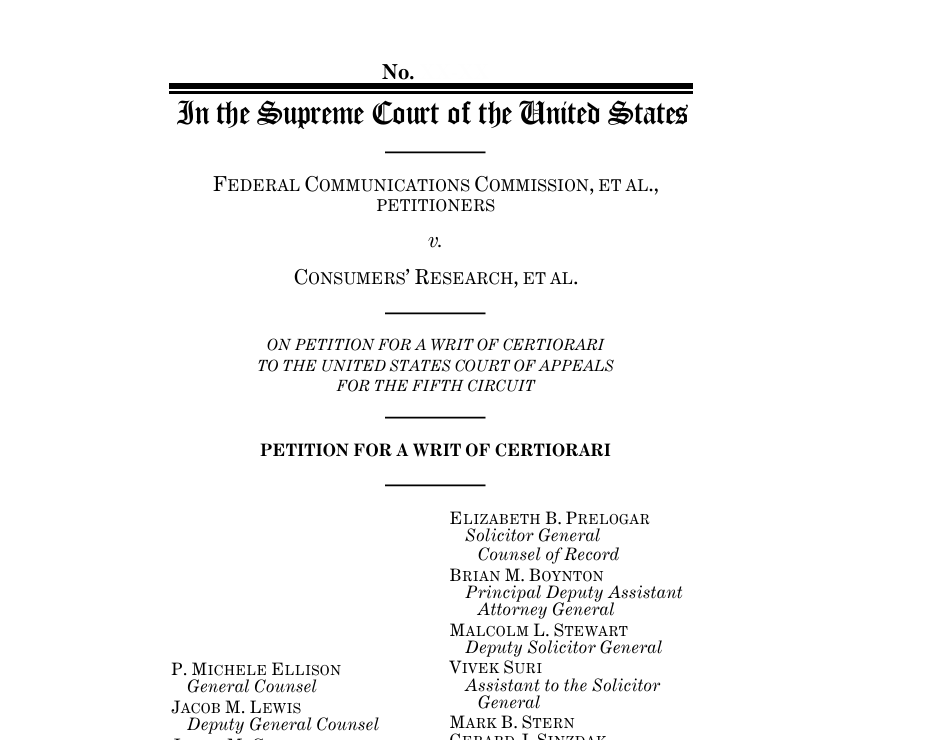Feds Ask Supreme Court to Preserve Universal Service Fund
FCC and Justice Department want the Fifth Circuit's July ruling, which found the $8-billion annual fund unconstitutional, overruled.
Jake Neenan

WASHINGTON, Oct. 1, 2024 – The Federal Communications Commission and Justice Department asked the Supreme Court Monday to strike down a July ruling that found an $8 billion broadband subsidy unconstitutional.

Universal Service Petition for Cert
That Fifth Circuit decision “invalidates the system that the Commission has used for a quarter century to implement an important Act of Congress,” the agencies wrote. “If left in place, the decision will upend the universal service programs, to the detriment of millions of consumers nationwide.”
The FCC’s Universal Service Fund supports building and maintaining rural broadband infrastructure, plus internet discounts for low-income households, schools, libraries, and healthcare centers. Set up in 1996, it’s funded by fees on interstate voice revenue and managed on a day-to-day basis by the Universal Service Administrative Company, which the FCC stood up for that purpose.
In July, a full panel of Fifth Circuit judges ruled that scheme was unconstitutional. Each element – the fees on telecom providers and delegation of management to USAC – was challenged separately by conservative nonprofit Consumers’ Research, but the court declined to rule on either and found the combination of the two factors illegally took taxing power away from Congress.
The ruling broke with Sixth and Eleventh Circuit decisions in previous challenges brought by Consumers’ Research. It’s on hold until the Supreme Court weighs in.
“Congress did not delegate legislative power to the Commission. The Commission did not delegate governmental power to the [USF] Administrator,” the agencies argued. “Nor did the combination of those two conferrals of responsibility create a constitutional violation.”
The FCC made clear its first choice would be for the high court to grant its petition and take up the case, but the agency offered an alternative: holding the petition until justices resolve another case they’ve taken up. That case, Wisconsin Bell v. United States ex rel. Heath, involves whether fraudulent reimbursement requests made to USAC can be penalized under the False Claims Act. In order for that to be the case, USAC would have to be an “agent” of the United States or the money would have to be “provided” by the government.
A decision on whether USAC is an agent of the government could have an impact on the Consumers’ Research argument that the FCC improperly delegated duties to the entity. Oral arguments in Wisconsin Bell are scheduled for November 4.
“This Court’s resolution of those issues in Wisconsin Bell could shed light on the nature of the FCC’s relationship with [USAC] – which, in turn, could affect the nondelegation analysis in this case,” the government wrote.









Member discussion